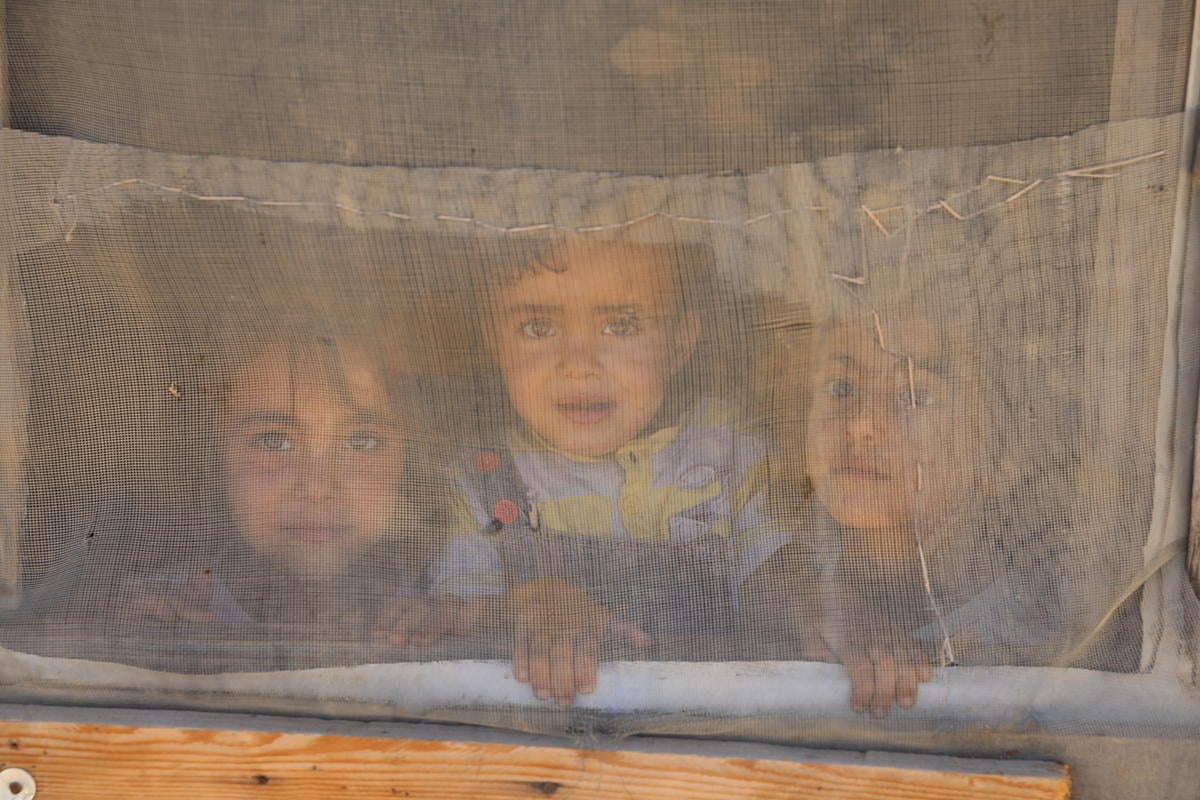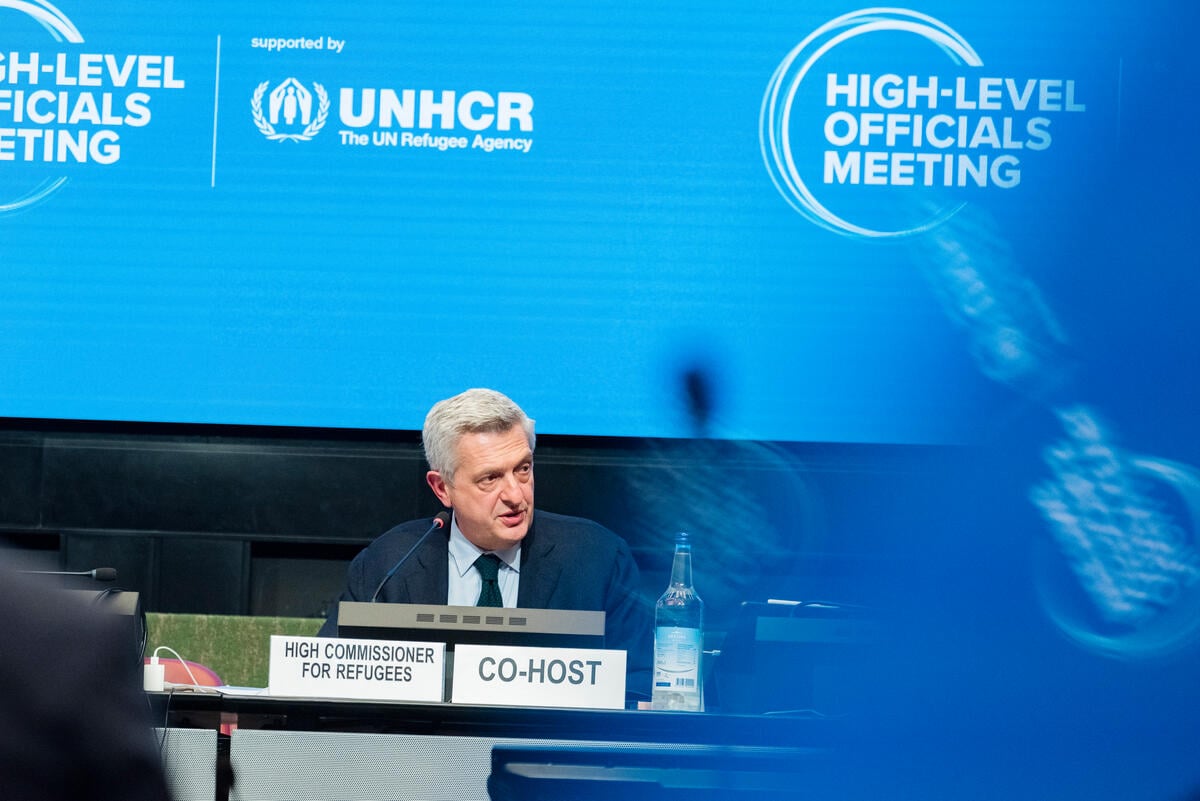Iraq Conference: UNHCR convenes humanitarian conference on Iraqis forced from their homes
Iraq Conference: UNHCR convenes humanitarian conference on Iraqis forced from their homes

GENEVA, April 16 (UNHCR) - The UN refugee agency on Tuesday convenes a two-day conference involving more than 60 nations focused on the deepening humanitarian crisis of the nearly 4 million Iraqis who have been displaced by the conflict in their homeland.
"We should not expect this conference to be a miracle medicine, a magic response to the difficult humanitarian crisis that many Iraqis face, whether those who are internally displaced inside Iraq or those refugees who left Iraq for one of the neighbouring countries," said Radhouane Nouicer, director of the Middle East and North Africa bureau of UNHCR.
"But we certainly intend and hope that this conference will contribute to raising the awareness of the world to the humanitarian crisis that faces Iraq and Iraqi refugees as a result of the difficult security situation in their country," he said.
The conference on the humanitarian needs of nearly 4 million refugees and displaced people in Iraq and surrounding countries, chaired by UN High Commissioner for Refugees António Guterres, has attracted more than 450 participants from governments and international and non-governmental organisations. The world is facing the largest displacement of people in the Middle East since the conflict triggered by the creation of Israel in 1948.
Guterres will be joined in the opening session by UN Under-Secretary-General for Humanitarian Affairs John Holmes; UN Special Representative of the Secretary-General for Iraq Ashraf Qazi; and the Director-General of the International Committee of the Red Cross, Angelo Gnaedinger. Participants also will see a video message from UN Secretary-General Ban Ki-moon.
UNHCR hopes the conference will lead to creation of an international partnership to meet the growing needs of the Iraqi displaced and ensure support for the neighbouring countries that have so far borne most of the burden.
Some 1.9 million Iraqis are now displaced inside their country and up to 2 million others have fled abroad. The greatest number are hosted by Syria, with 1.2 million, and Jordan, with 750,00, but there are also an estimated 100,000 in Egypt, 54,000 in Iran, 40,000 in Lebanon and 10,000 in Turkey.
Many Iraqis had fled before the fall of the Saddam Hussein government in 2003, but between 2003 and 2005 more than 300,000 Iraqis had returned home. That trend reversed, especially after the bombing of a revered Shiite holy site in Samarra 14 months ago. Since then some 800,000 Iraqis have fled their homes and displacement is continuing at the rate of up to 50,000 people a month.
UNHCR says it is vital to keep the borders to neighbouring countries open for Iraqis who need to flee and for the international community to ensure that Iraqi refugees are treated with respect and receive protection. Support for the Iraqi refugees - and their host countries - must continue until they feel safe to repatriate. Many Iraqis who had fled have exhausted their own resources and are now in desperate condition.
"The protection of these people from refoulement [forcible return to Iraq], bad treatment or hunger or deprivation - these are the objectives of UNHCR," said Nouicer.
UNHCR says the huge number of Iraqi refugees means they cannot be permanently integrated into the host countries. Most will be eventually repatriated but the UN refugee agency wants other countries to provide an increased number of places for the permanent resettlement of Iraqis who are most at risk and will not be able to return home.
Conditions are even worse for Palestinian refugees who have been forced from homes they had inside Iraq - becoming refugees again. They have faced continual harassment since the end of the previous government and many are now stranded in desolate camps at the border - afraid to remain in Iraq, but barred from entering neighbouring countries which already house millions of Palestinian refugees.
UNHCR acknowledges it is very hard to operate inside Iraq but emphasises that everything possible must be done to stem the displacement of Iraqis from their homes and the further outflow of refugees which could create another long-term refugee problem in the Middle East.








